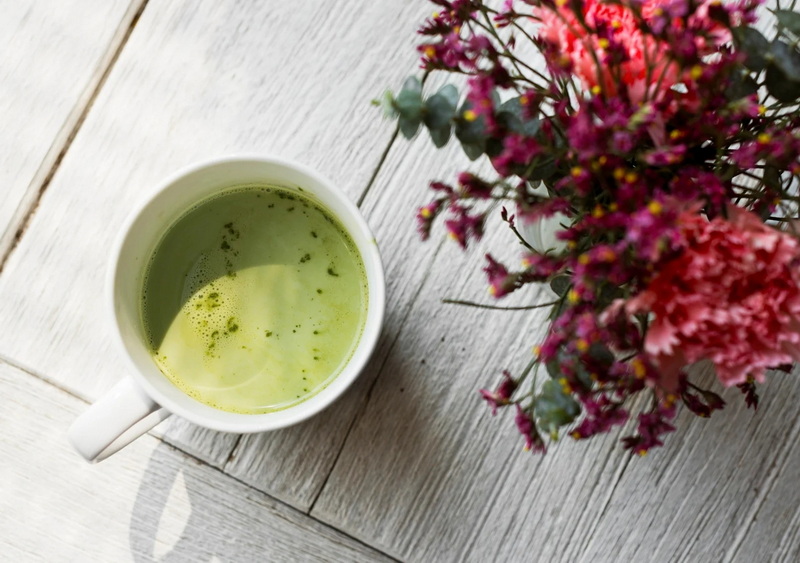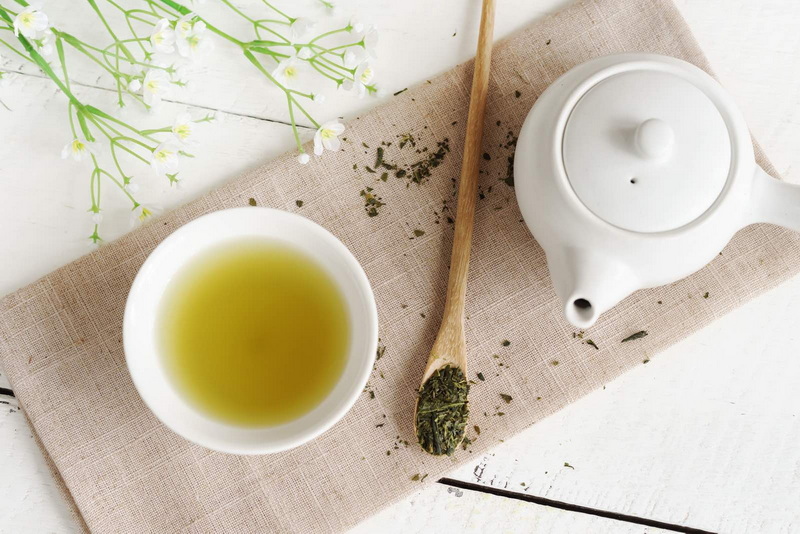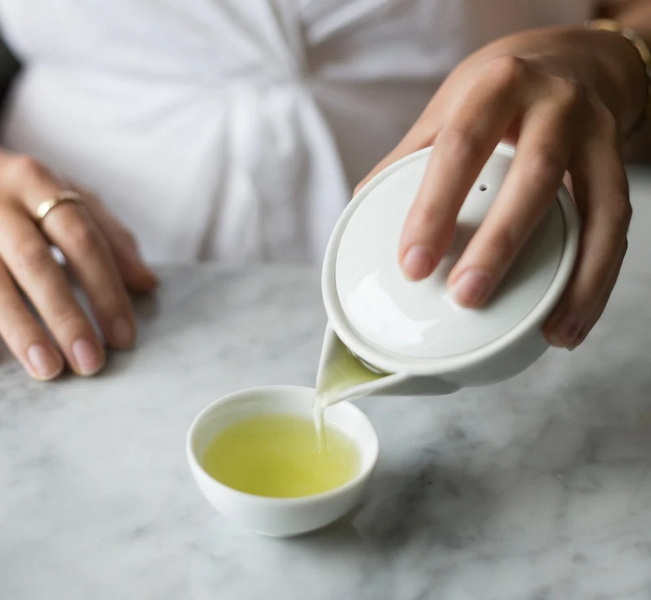Content Menu
● Introduction to L-Theanine
>> How L-Theanine Works
● Benefits of L-Theanine for Relaxation
>> Reduced Stress and Anxiety
>> Improved Sleep Quality
>> Enhanced Focus and Alertness
>> Cognitive Function Improvement
● Why Choose a 60% Concentration?
>> Dosage Considerations
>> Absorption and Bioavailability
● Potential Risks and Interactions
>> Interaction with Medications
>> Side Effects
● Conclusion
● FAQ
>> 1. What are the primary benefits of L-theanine for relaxation?
>> 2. How does L-theanine interact with caffeine?
>> 3. What is the recommended dosage of L-theanine for relaxation?
>> 4. Are there any potential risks or interactions with L-theanine?
>> 5. Can L-theanine be consumed naturally through green tea?
● Citations:
Green tea has long been revered for its numerous health benefits, and one of its key components, L-theanine, plays a significant role in promoting relaxation and reducing stress. In this article, we will explore why L-theanine, particularly in a concentration of 60%, is considered an excellent choice for those seeking relaxation.

Introduction to L-Theanine
L-theanine is a non-protein amino acid found primarily in green tea, black tea, and certain types of mushrooms. It is known for its ability to induce a state of calm and focused alertness, making it a popular supplement for stress relief and improved sleep quality.
How L-Theanine Works
L-theanine works by influencing neurotransmitter levels in the brain, such as GABA, serotonin, and dopamine, which are associated with mood regulation and relaxation. It also blocks excitatory neurotransmitters like glutamate, contributing to its calming effects. Additionally, L-theanine increases alpha brain wave activity, which is linked to relaxation and reduced stress levels.
Benefits of L-Theanine for Relaxation
Reduced Stress and Anxiety
Studies have shown that L-theanine supplementation can significantly reduce stress and anxiety levels. A systematic review found that doses of 200-400 mg per day were effective in reducing stress responses in individuals exposed to stressful conditions. This makes L-theanine an attractive option for those dealing with chronic stress.
Improved Sleep Quality
L-theanine is also beneficial for improving sleep quality. It helps individuals relax before bedtime and sleep more deeply, which can be particularly useful for those struggling with insomnia. The ability to enhance sleep quality without causing drowsiness during the day is a significant advantage.
Enhanced Focus and Alertness
When combined with caffeine, L-theanine can enhance focus and alertness while reducing the jittery side effects often associated with caffeine intake. This synergistic effect makes it popular among individuals seeking improved cognitive performance without the anxiety.
Cognitive Function Improvement
L-theanine may also contribute to improved cognitive function by enhancing memory and attention. Studies suggest that it can improve performance in tasks requiring attention and memory, making it beneficial for students and professionals alike.

Why Choose a 60% Concentration?
Choosing a 60% concentration of L-theanine ensures a potent and effective dose for relaxation. While the typical amount in green tea is much lower (about 8-30 mg per cup), supplements allow for a more controlled and higher intake, which can be more effective for achieving desired relaxation benefits.
Dosage Considerations
The recommended dosage for L-theanine typically ranges from 200 to 400 mg per day. A 60% concentration means that for every 100 mg of the supplement, 60 mg is pure L-theanine. This concentration is often considered optimal for achieving the desired effects without excessive intake.
Absorption and Bioavailability
The absorption and bioavailability of L-theanine are generally good, allowing it to reach the brain quickly and exert its effects. This rapid onset of action makes it particularly useful for situations where immediate relaxation is needed.
Potential Risks and Interactions
While L-theanine is generally considered safe, it may interact with certain medications or exacerbate conditions in rare cases. It is advisable to consult a healthcare provider before starting any new supplements, especially if you are pregnant, breastfeeding, or taking other medications.
Interaction with Medications
L-theanine may interact with certain medications, such as blood thinners and stimulants. It is crucial to monitor these interactions to avoid any adverse effects.
Side Effects
Common side effects of L-theanine are rare but may include dizziness or stomach upset. These effects are typically mild and temporary.
Conclusion
In conclusion, L-theanine, particularly in a 60% concentration, is an excellent choice for relaxation due to its ability to reduce stress and anxiety, improve sleep quality, and enhance focus when combined with caffeine. Its natural occurrence in green tea and availability as a supplement make it accessible to those seeking a natural relaxation aid.

FAQ
1. What are the primary benefits of L-theanine for relaxation?
L-theanine helps reduce stress and anxiety, improves sleep quality, and enhances focus without causing drowsiness. It achieves these benefits by influencing neurotransmitter levels and increasing alpha brain wave activity.
2. How does L-theanine interact with caffeine?
When combined with caffeine, L-theanine can enhance focus and alertness while reducing the jittery side effects often associated with caffeine intake. This combination is popular for improving cognitive performance.
3. What is the recommended dosage of L-theanine for relaxation?
The recommended dosage typically ranges from 200 to 400 mg per day. A 60% concentration means that for every 100 mg of the supplement, 60 mg is pure L-theanine.
4. Are there any potential risks or interactions with L-theanine?
While generally safe, L-theanine may interact with certain medications or exacerbate conditions in rare cases. It is advisable to consult a healthcare provider before starting any new supplements.
5. Can L-theanine be consumed naturally through green tea?
Yes, L-theanine is naturally found in green tea, but the amount per cup is typically much lower than what is available in supplements. Drinking green tea can still provide some relaxation benefits, though supplements offer a more controlled and higher intake.
Citations:
[1] https://calgaryneuropathy.com/60-l-theanine/
[2] https://pubmed.ncbi.nlm.nih.gov/31758301/
[3] https://pmc.ncbi.nlm.nih.gov/articles/PMC6836118/
[4] https://www.livemomentous.com/products/l-theanine
[5] https://artfultea.com/blogs/wellness/l-theanine-in-tea
[6] https://pmc.ncbi.nlm.nih.gov/articles/PMC5537891/
[7] https://www.medicalnewstoday.com/articles/324120
[8] https://pubmed.ncbi.nlm.nih.gov/28056735/
[9] https://www.myjapanesegreentea.com/l-theanine
[10] https://www.healthline.com/health/l-theanine
[11] https://pmc.ncbi.nlm.nih.gov/articles/PMC8080935/
[12] https://www.webmd.com/vitamins-and-supplements/theanine-uses-and-risks






























